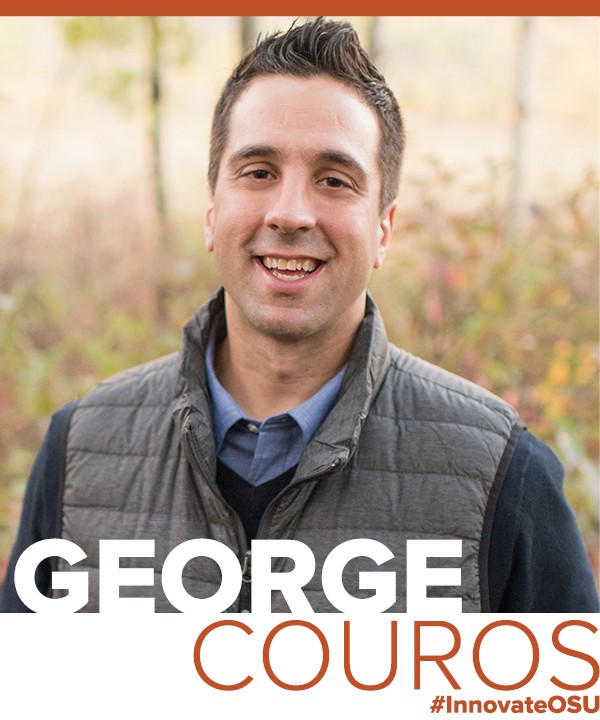Keynote Q&A with George Couros

“Innovation requires an experimental mindset.”
While this quote is attributed to Campbell Soup chief executive officer Denise Morrison, it’s a lifestyle for Innovate keynote speaker George Couros.
George is an innovative teaching, learning and leadership consultant. He is the author of The Innovator’s Mindset, a book that challenges traditional educational norms and encourages teachers and administrators to empower their students to wonder, explore and become forward thinkers.
Learn more about George through the following Q&A. His presentations at this year’s conference will lead the access thread, which will discuss how institutions can reach underrepresented populations, as well as the intersection of affordable materials, equitable technology and high-quality learning experiences.
How did you find yourself in education?
I never thought I would become an educator, but my parents—both immigrants to Canada—placed such a value on the importance of education and that it would lead to a better life. I eventually found myself having this fire for ensuring that we could make school a place that will continuously lead our students to better opportunities than the generation before.
It seems like education is at a pivotal point, transitioning from the “traditional” to the “new and next.” Do you see that and how can educators navigate through this new norm?
Education is always changing. We might not notice it as much because we are in the middle of the process. Now though, change is happening at a pace we have never seen before. As long as educators are willing to continue to push their learning and not only embrace change, but initiate it, we will be in a good place.
Your book, The Innovator’s Mindset, challenges teachers and administrators to empower students. What are two easy ways for K12 teachers to do that?
I am not sure if this would be considered "easy," but we need to give up control. We also must continuously ask if we are doing things that the students could be doing for themselves. Too often, what educators deem as "work," if we look deep enough, it is really taking away learning from our kids.
What about instructors in higher education?
The focus needs to be more on creation. This is not to say that consumption isn't important, but "regurgitation" and actual creation are not the same thing. What do learners create because of your class?
Our conference theme this year is Innovate Forward and focuses on the future of teaching, learning and technology. What does that mean to you?
Technology is powerful, but we need to focus more on innovation. Too often we look to find ways to embed tech into our classrooms, but we need to shift our focus on how to empower our learners. Innovation is focused more on serving students. Technology could be a part of that process but it is never the end goal.
Along those same lines, what does “access” in education mean to you and what do you foresee the future of access?
If I was to go to a school and take away the library, there would be an obvious uproar. But if we stop students from bringing devices into the classrooms, many people say nothing. With the world at our fingertips, if access is not given to our students (or sometimes even allowed), we are not allowing or empowering our students to figure out their own path toward success, whatever that means to them. In a world where information is easily accessible, if a student needs the teacher to learn by the end of our time with them, we have missed the point of our work.

